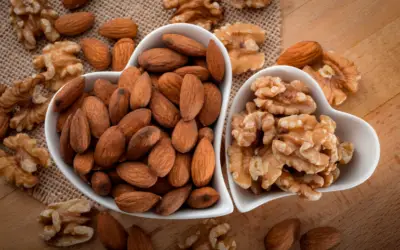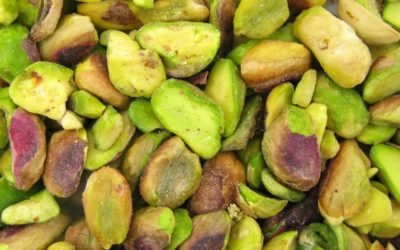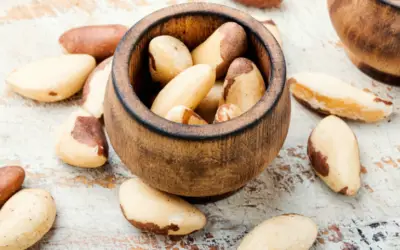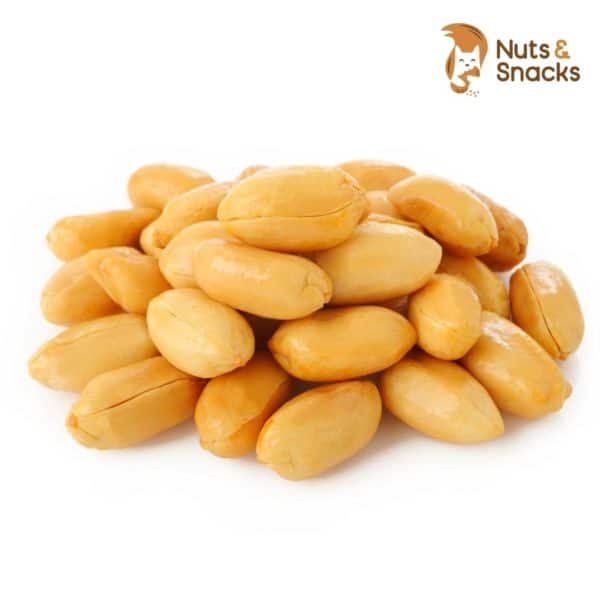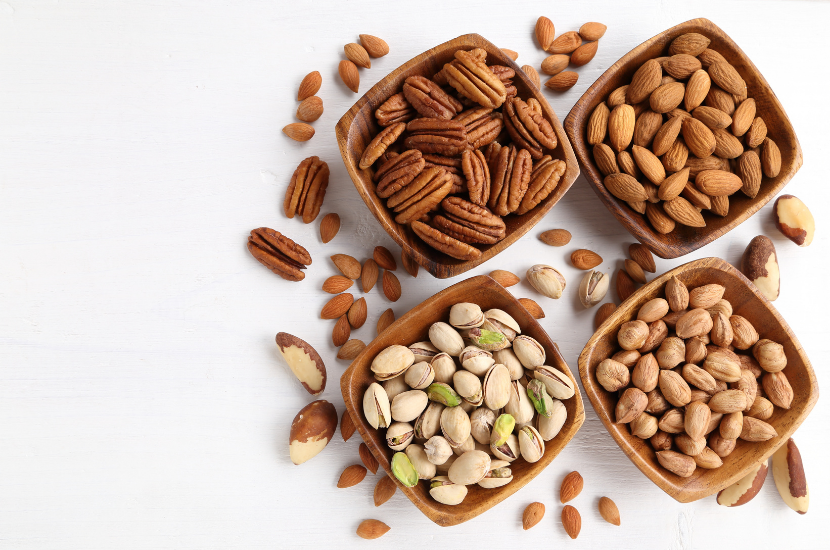
Recommended Servings And Benefits
Daily Nuts are highly nutritious, containing vitamin E, magnesium, selenium, and other minerals. They are also rich in antioxidants, that help to reduce cell damage and lower “bad” cholesterol levels. Hence, nuts are healthy snacks to consume in comparison with potato chips and fried snacks. However, how much of these snacks should we consume, since we always hear that moderation is key? This article addresses that question, and it is categorized into amount by nut type.
Pistachios
Pistachios contain potassium which lowers the risk of developing heart illness, helps to protect muscle mass in the aged, and maintains the density of bones. Pistachios also prevent eye diseases, constipation and promote the growth of good bacteria in the gut. They also help to reduce the risk of developing colon cancer and they make for healthy snacks that do not spike blood sugar levels for those with diabetes.
The recommended serving of pistachios are 30 pieces which is the equivalent of 30 grams per day.
Hazelnuts
Hazelnuts are rich in mono – and polyunsaturated fats, as well as omega-6 and omega-3 fatty acids. They also contain a type of antioxidant that decreases blood cholesterol and inflammation, therefore reducing the risk of developing cancer and heart illness. The high amounts of fatty acids, fiber, antioxidants, magnesium and potassium in hazelnuts may help to keep blood pressure at a normal level. They also contain proanthocyanin, an antioxidant that helps to reduce the occurrence of Urinary Track Infection and blood clotting.
It is recommended that you consume only around 20 pieces of hazelnuts per day so that you will not gain weight.
Pecans
Pecans aid in the functioning of the nervous system, are good sources of antioxidants and lowers “bad” cholesterol levels. 28 grams of pecan nuts contain only four grams of carbohydrates. They also help to reduce insulin levels which is beneficial for losing weight as insulin enables the body cells to absorb glucose which converts into fats. Pecans are also good sources of copper, thiamine, and zinc. Copper is needed for the functioning of the immune system and the nervous cells, as well as the production of red blood cells. Thiamine, which is vitamin B1, is important for the functioning of the nervous system. Without it, it may also lead to a brain disorder of which the symptoms include hallucination and vision impairment. Lastly, the zinc found in pecans is important for the functioning of the immune system, and aids in the functioning of the brain as well as the healing of wounds.
It is recommended that you consume only around 15 pieces of pecans per day, as they are relatively high in calories. A serving of 28 grams contains around 200 calories, so unless you exercise more, you should not exceed the daily intake, or it may contribute to weight gain.
Walnuts
Walnuts contain antioxidants that are needed to prevent cell damage. They also contain alpha-linolenic acid (ALA) which can only be taken from food but not the human body as the human body cannot produce it. ALA is a fatty acid which is beneficial for humans as ALA helps to reduce inflammation and promotes heart and brain health. Walnuts are sources of copper which are good for the growth of red blood cells and the prevention of heart illnesses. Walnuts also contain manganese which helps in metabolism and is involved with the chemical processes in your body. Lastly, walnuts contain vitamin B6 which helps to alleviate mood and reduce depression.
It is recommended to consume 10 pieces of whole walnuts or 20 if they are halved. Overconsumption of walnuts may lead to bloating or loose stools.
Cashews
Cashew nuts provide the benefits of improving heart health as they contain healthy monounsaturated and polyunsaturated fatty acids that lower cholesterol levels and therefore reduce the risk of developing heart illness. Cashew nuts also contains high amounts of zinc. For every 100 g of cashew nuts, there are 5.6 mg of zinc present. Zinc is an important mineral in the functioning of the immune system as it produces antioxidant enzymes, and it is also involved in the action of the immune system regulators.
A weight management advisor, Dr Gagi Sherma recommends consuming only four to five cashews a day, as some people may be affected by two types of amino acids present in the cashews that may cause headaches. For everyone else, the recommended intake is 15 cashew nuts per day.
Brazil nuts
Brazil nuts are highly nutritious and contain a lot of health benefits. For instance, they contain high amounts of selenium that improves thyroid functions. Brazil nuts are also good antioxidants that helps fights against heart illness and cancer. They lower risk of developing Alzheimer’s disease and are good for the brain. Read more about its benefits here.
It is recommended that you do not consume more than two Brazil nuts a day, as they have high concentrations of selenium, which may cause brittle hair and nails when overconsumed.
Almonds
Finally, we have almonds, which are one of the healthiest nuts. Almonds have relatively high concentrations of vitamin E. For every 100 g of almonds, there are 25.63 mg of vitamin E present. This amount is around half of a person’s daily requirement of vitamin E. Vitamin E is crucial for the support of the immune system as it helps to reduce oxidative stress and damage to the immune cells. Almonds also lower blood sugar levels for people with diabetes and promote the growth of good bacteria in the gut. Lastly, almonds contain magnesium and phosphorous which are beneficial for muscle and bone health respectively.
Although almonds are highly nutritious, they are also high in fats and calories. 28 grams of almonds contain 163 calories and 14 grams of fat. Almond flour and almond butter also contain high amounts of calories and fats, and hence you should be careful of your intake of them. It is suggested that you consume only a quarter cup or about 35 grams of almonds per day.
Conclusion
All in all, nuts are healthy, and they are great sources of monosaturated fats which are beneficial for heart health. However, some nuts may contain too many calories and hence it is always better to eat based on the recommended portions per day.

